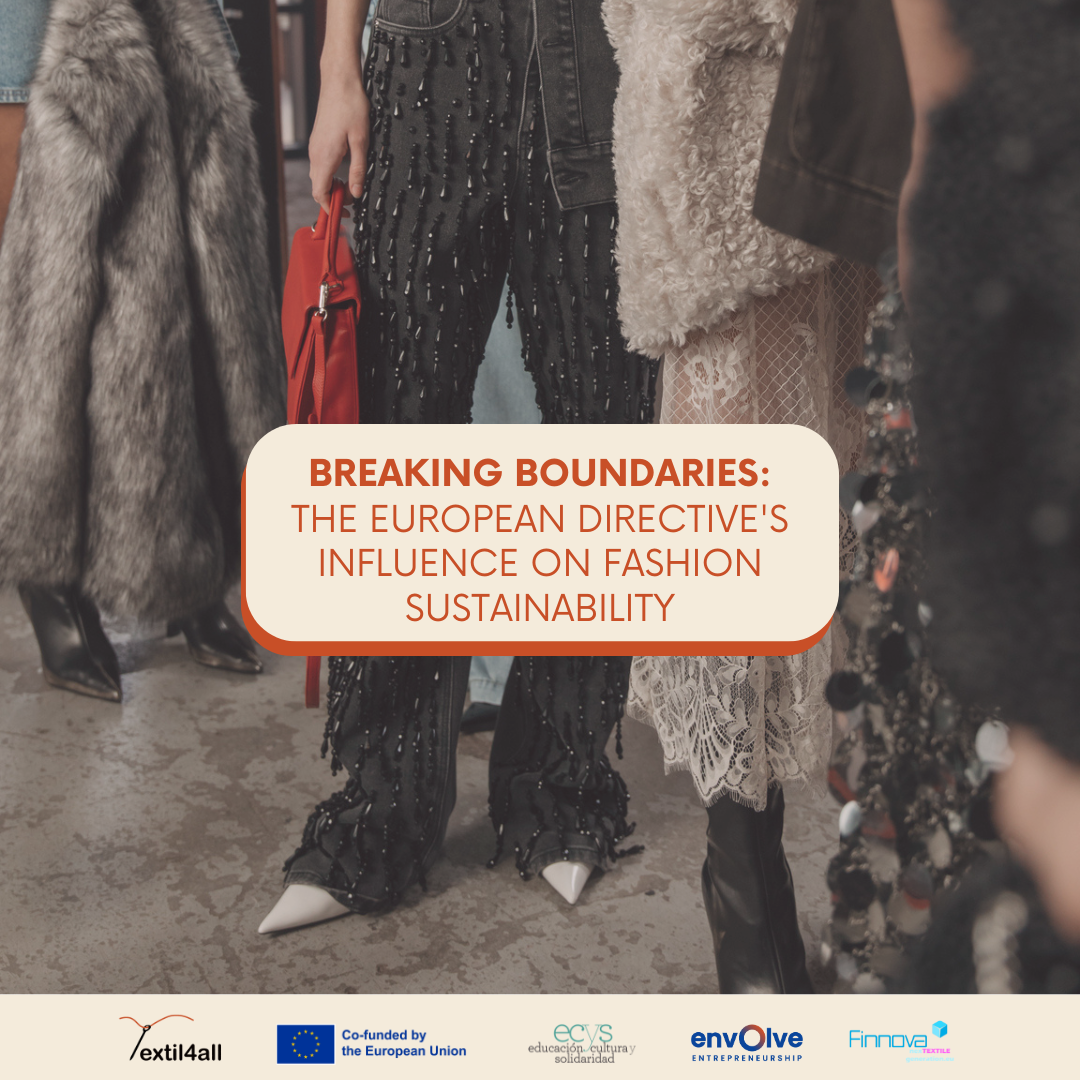- «The Impact of European Directives on Fashion Sustainability: Reflections from Copenhagen Fashion Week».
- To make a long story short, the European Union is increasingly promoting sustainability in the textile sector
The European directives for the textile and fashion sector had a strong presence at the last Copenhagen Fashion Week.
Copenhagen Fashion Week’s ambitious sustainability action plan, first launched in 2020 and in place since last 2023, obliges all brands to meet 18 minimum requirements, covering six key areas: strategic direction, design, smart choice of materials, working conditions, consumer engagement and show production.
With the amendment of the Textile Waste Directive, the European Commission proposes certain changes and regulations regarding the production of textile products and their distribution.
The European Commission establishes a series of rules for the producers to be responsible for the whole lifecycle of the textile products they develop, in order to support the sustainable management of textile waste in the European Union. This regulation considers aspects such as the separate collections, reuse of materials and textile recycling, aligned with the EU Strategy for Sustainable and Circular Textiles.
The EU Strategy for Sustainable and Circular Textiles faces the production and consumption of textiles, while recognizing the importance of the textiles sector. It implements the commitments of the European Green Deal, the Circular Economy Action Plan and the European industrial strategy.
The focus of the new regulation is to facilitate the sustainable management of textile waste in the EU. It invites producers to reduce the amount of waste generated and to increase the lifetime of their products.
In the Strategy, the Commission will focus on setting design requirements for textiles, ensuring longer lasting, easier repair and recycling, as well as efficient use of energy and resources. It will also seek to reverse overproduction and discourage the destruction of unsold or returned textiles and reduce the release of microplastics from synthetic textiles.
At the same time, the strategy aims to restrict the export of textile waste and promote sustainable textiles globally.
Currently, different EPRs (Extended Product Responsibility) are used in the different member states, which is why it is intended to introduce a mandatory and harmonized EPR.
At the same time, the eco-design process is being promoted, with the aim of making products more durable, reusable and recyclable.
So, any brand that wants to do business within the European Union, in the textile/fashion framework, must pay strict attention to transparency and traceability of the product cycle.
On the other hand, the implementation of the DPP (Digital Product Passport) is increasingly present, in order to include relevant contents regarding this issue, such as the durability and reparability of the product, the percentage of recycled content, the carbon footprint of the product, the circularity in relation to its recyclability and its environmental sustainability, etc…
Meanwhile, the EU is working on a method focused on measuring the environmental footprint of the product (Product Environmental Footprint) for clothing and footwear (carbon emissions, water and energy).
In short, the European Union is increasingly promoting sustainability in the textile sector, and large organizations, congresses of companies and pioneers in the sector are contributing to this change, despite the complexities implied in terms of processes.
So, if one of the biggest events in this industry (as the CPHFW) is able to do the same activity, with the same excellence, and at the same time following a series of more environmentally friendly changes, we all can. The change is in our hands.
Join us in this mission to make the textile sector an engine for positive change!
Textil4all is part of the European Erasmus+ program funded by SEPIE-Spanish Service for the Internationalization of Education with a budget of 60,000 euros and a duration of 19 months. Led by Educación, cultura y solidaridad (Spain), the project counts with Envolve (Greece) and Finnova Foundation (Belgium) as partners.
About Educación Cultura y Solidaridad (ECyS)
Educación Cultura y Solidaridad is a non-profit association whose mission is to promote the integral development of people so that they can be protagonists of their own history and collaborate in the construction of social problems, promoting participation and local development for a fairer world and an inclusive society. To this end, it carries out actions of socio-educational intervention with people and groups with greater difficulty of inclusion, promoting their empowerment. The Centre is consolidated and recognised in San Cristóbal de los Ángeles (Madrid) as a point of reference for families, children and young people from different backgrounds and young people at risk of exclusion, to whom it offers the possibility of socio-professional and academic training.
About ENVOLVE
Envolve is a global organisation that supports entrepreneurship and innovation. Envolve Greece is part of Libra Social Responsibility, with initiatives offering educational and entrepreneurial opportunities, including support for RSL’s activities in response to the refugee crisis. Envolve is a member of the Ecosystex network (part of the European Technology Platform for the Future of Textiles and Clothing) and offers programmes that support entrepreneurship and sustainable enterprises.
About Finnova
The Finnova Foundation is a Spanish-Belgian non-profit organisation created in 2009 with the aim of promoting innovation both regionally and locally across Europe, and internationally through partner countries. Finnova focuses especially on innovation in the fields of new technologies or business models related to environmental sustainability and social inclusion.

